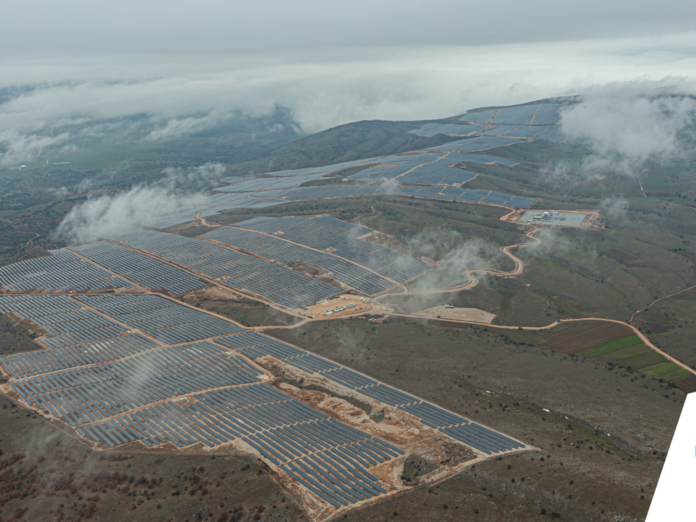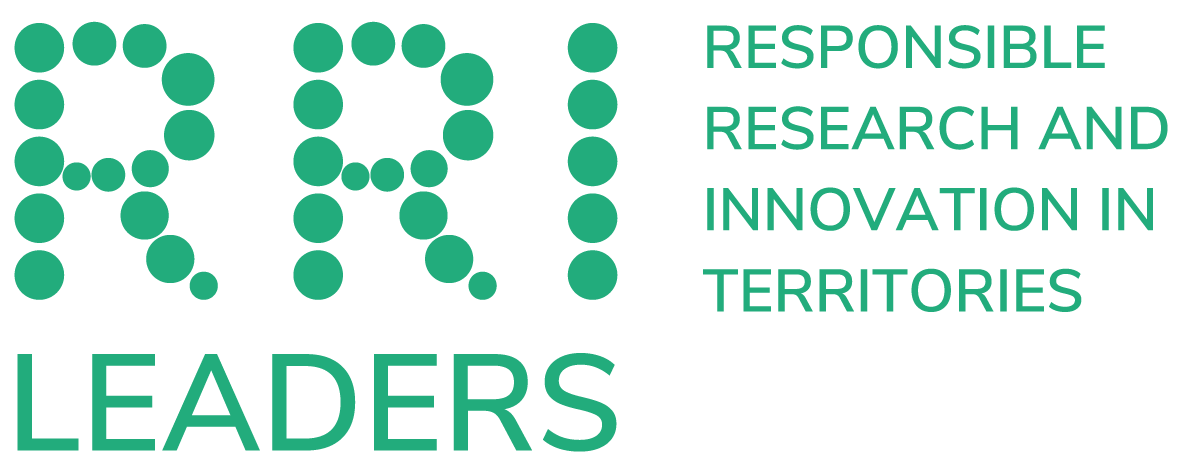The experience of RRI in Western Macedonia

Responsible Research and Innovation (RRI) has been a relatively new and multi-dimensional topic for both scientists and policy makers in the past two decades. In fact, the RRI discussion has been characterized by two key trends: Considering that governance “would need to be based on the principle of inclusivity involving all actors at an early stage,” the first trend places emphasis on the significance of social public consultation and involvement (Owen et al., 2012). In that case, the values on which European governance should be based, accrue exclusively from democratic activities and procedures. The other trend focusses on anchoring the procedure of policy making on specific pre-set regulatory filters, such as common goals included at a European Commission level, which may provide ethical integrity, financial sustainability, and social acceptability (van den Hoven et al., 2013). These two distinct approaches of the same model constitute only two possibilities of the entire range of available opportunities offered by the concept of RRI, which may involve the mixing-up with other decision-making approaches that include specific policy goals.
In the aforementioned perspective, energy transition as a distinct policy process, may be promoted through RRI adding its extra qualitative elements that differentiate the core of its policy principles. Energy transition from a fossil-fuel based production model to a sustainable development paradigm, has been a challenging issue for every region and policy-making framework (Byrne & Lund, 2017). Adding a level of “responsibility” in energy transition policies is a must for all helices of the quadruple helix and mostly for the helix of citizens. In fact, civil society most often perceives energy transition with skepticism, showing the greatest levels of resistance (Smith, 2012). The Region of Western Macedonia (RWM) in Greece is in the process of energy transition since 2021, implementing the mega task of abandonment of its lignite-based production model, to a new development model, based on sustainability and innovation. The whole transition process is implemented according to the Just Transition Development Programme (JTDP) (SDAM, 2021), which constitutes a cogwheel of a broader mechanism consisting of the “European Green Deal”, and the “Energy Roadmap for 2050”. JTDP was designed in compliance with the “National Energy Plan and Climate Plan”, indicating the Greek government’s strategic plan for climate and energy issues (Hellenic Ministry of the Environment and Energy, 2019).
According to von Schomberg (2011), Responsible Research and Innovation as a theoretical process can be considered a “transparent, interactive process by which societal actors and innovators become mutually responsive to each other with a view on the (ethical) acceptability, sustainability and societal desirability of the innovation process and its marketable products (in order to allow a proper embedding of scientific and technological advances in our society)”. What the researcher actually states in this case, is the multi-task nature of RRI as an empowerment lever of innovation, in the direction of achieving a socially-beneficial perspective that may include any kind of policy that is ethical, sustainable and participative. The socially-beneficial perspective is even more transparent on the definition given by the European Union a few years later, where the concept is imprinted as “the ongoing process of aligning research and innovation to the values, needs and expectations of society” (Italian Presidency of the Council of the European Union, 2014). Stilgoe et al. (2013) initiate RRI’s four major dimensions (AIRR dimensions) of anticipation, inclusiveness, reflexivity and responsiveness, as the pillars for implementing RRI framework in the decision-making. This framework is further complemented with a set of policy agendas (also called RRI keys) defined by the European Commission, which are gender equality, open access, science education, public engagement and ethics. These nine elements constitute the scope of embedment of every single decision-making policy that may incorporate innovation into a specific policy area.
Despite being a relatively new concept, RRI has been slightly transformed its implementation scope in the recent years. From exclusively being an innovation framework that provided the rules under which innovation and science should be implemented, it has been transformed to a policy-making tool that incorporates science and innovation principles. According to scholars, RRI targets a specific section of the political process, politicising the policy ‘inputs’ that have been “depoliticized” in recent times (Fawcett & Marsh, 2014), indicating that is primarily a policy-making framework that focuses at embedding the sustainable principles of research. In fact, RRI should be perceived as an effort to readjust the politics of research governance between the input and output sides rather than as an effort to repoliticise research governance (Hartley et al., 2017).
Apart from the role that RRI can take for specific technologies, there is also a role of RRI for distinct socio-technical transformation procedures (including a large spectrum of different technologies) such as the transition of the energy system toward carbon neutrality (Buchmann et al., 2023; Owen et al., 2013). Thus, based on the view of Owen et al. stating that “the aim of RRI policy is that research and innovation should have a societally beneficial impact” (Fitjar et al., 2019), RRI can be operationalized in the form of a tool for leading energy transition to societally beneficial directions (Buchmann et al., 2023). The purpose of this paper, is to create a framework of evaluation of the main energy transition policies by the main beneficiaries of social benefits – the citizens themselves. In fact, the participation of citizens in RRI has been highlighted by scholars as considerably important, as the alignment of policy making with moral and socially beneficial values may bring a societal consensus on the policies that lead to the conduction research and innovation in a responsible manner (Weinberger et al., 2021). Considering energy transition specifically, such transformative policy frameworks can be successful in the long term, only if citizens participate of the transition processes (Weinberger et al., 2021).
The experience of RRI in Western Macedonia showed that in principle, the citizens’ perceptions of the actions that should be taken in order to strengthen the “responsibility” of energy transition in the region do not differ significantly to those of the stakeholders. The RRI co-creation process is a considered the most effective mean to achieve “responsibility” in the energy transition policy making, through a set of distinctive actions directly related the keys & dimensions of the RRI / AIRR framework. The participating citizens and the stakeholders of the RRI-LEADERS project in Western Macedonia appear to follow a similar pattern in adopting actions that encompass “responsibility” in the direction of social benefit and regional development. Both stakeholders and citizensstill heavily support actions that have the potential to provide a fully developmental footprint in RWM. These actions may be in the form of upskilling, training, providing financial incentives to businesses & local workers, and building infrastructures or legislation frameworks (e.g. spatial plan) that may ease development in the region. Their minor objections, have been in the direction of slightly conceptually improving the actions, by adding more elements regarding potential social benefits or just making the actions more concrete and precise.
However, there has been noted a qualitative differentiation at a specific sector: Citizens categorically oppose actions and measures that may have a negative impact on financial development, even if they have a green mark. For instance, the imposition of any kind of green taxes, tariffs or penalties, is considered a “red rag” by them. That is still the case, even if the money from the taxes is projected to be returned to the region, in other financial or social activities. The explanation for this, lies in the harsh effects they have already experienced over the past years, because of the vertical drop of financial activity in the region due to the lignite abandonment. In fact, the citizens of RWM are very specifical about the implementation of any measure that has the potential to harm or decrease financial activity today and may improve the environment or even the local economy tomorrow. This conclusion should probably trigger policy makers to re-consider a lot of measures that may have a positive impact on the long term, but societies are not able to cope with them in the short term.
References
Buchmann, T., Wolf, P., Müller, M., Dreyer, M., Dratsdrummer, F., & Witzel, B. (2023). Responsibly shaping technology innovation for the energy transition: an RRI indicator system as a tool. Frontiers in Research Metrics and Analytics, 8.
Byrne, J., & Lund, P. D. (2017). Clean energy transition—our urgent challenge: an editorial assay. Wiley Interdisciplinary Reviews: Energy and Environment, 6(1).
Fawcett, P., & Marsh, D. (2014). Depoliticisation, governance and political participation. Policy and Politics, 42(2), 171–188.
Fitjar, R. D., Benneworth, P., & Asheim, B. T. (2019). Towards regional responsible research and innovation? Integrating RRI and RIS3 in European innovation policy. Science and Public Policy, 46(5), 772-783.
Hartley, S., Pearce, W., & Taylor, A. (2017). Against the tide of depoliticisation: The politics of research governance. Policy & Politics, 45(3), 361-377.
Italian Presidency of the Council of the European Union. (2014). Rome Declaration on Responsible Research and Innovation in Europe. Brussels, Belgium: European Commission.
Kovač, A., Paranos, M., & Marciuš, D. (2021). Hydrogen in energy transition: A review. International Journal of Hydrogen Energy, 46(16), 10016-10035.
Owen, R., Macnaghten, P., & Stilgoe, J. (2012). Responsible research and innovation: from science in society to science for society, with Society. Science and Public Policy, 39(6), 751–760.
Smith, A. (2012). Civil society in sustainable energy transitions. Governing the Energy Transition: reality, illusion or necessity, 180-202.
Stilgoe, J., Owen, R., & Macnaghten, P. (2013). Developing a framework for responsible innovation. Research Policy, 42, 1568-1580.
van den Hoven, J., Jacob, K., Nielsen, L., Roure, F., Laima, R., and Stilgoe, J. (eds). (2013). Options for strengthening Responsible Research and Innovation. Report of Experts Group on the State of the Art in Europe on Responsible Research and Innovation. Publications Office of the European Union.
Weinberger, N., Woll, S., Kyba, C. C. M., & Schulte-Römer, N. (2021). The value of citizen participation in technology assessment, responsible research and innovation, and sustainable development. Sustainability, 13(21), 11613.
